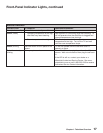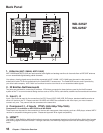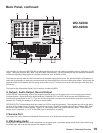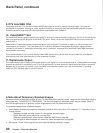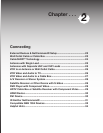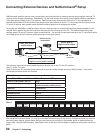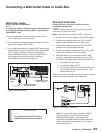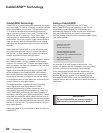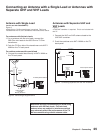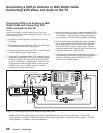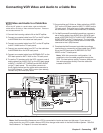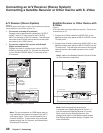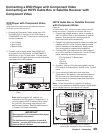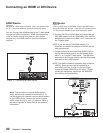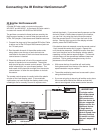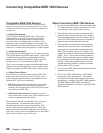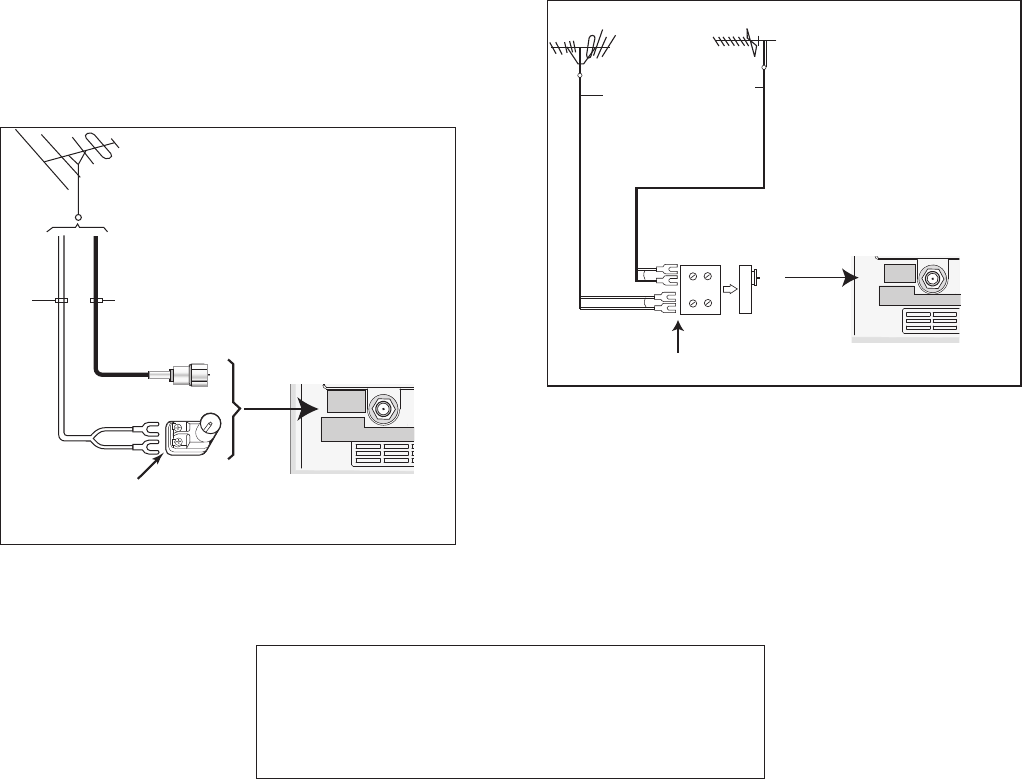
25
Chapter 2. Connecting
0IN
'MBU5XJO
-FBE
0QUJPOBM0IN
UP0IN
.BUDIJOH5SBOTGPSNFS
0IN
$PBYJBM
$BCMF
57CBDLQBOFMTFDUJPO
DTV/CABLE/
VHF/UHF
USE WITH
CableCARD
TM
ANT 1 / MAIN
Antennas with Separate UHF and
VHF Leads
Figure 4
A UHF/VHF combiner is required. This is not included with
the TV.
1. Connect the UHF and VHF antenna leads to the
UHF/VHF combiner.
2. Push the combiner onto ANT-1 MAIN on the TV
back panel.
&YUFSOBM
"OUFOOB
PS$BCMF
#BDL
4JEF
'MBU5XJO-FBE
6)'"OUFOOB
$IBOOFMT
7)'"OUFOOB
$IBOOFMT
0INUP
0IN
$PNCJOFS
'MBU5XJO-FBE
6)'
7)'
57CBDLQBOFMTFDUJPO
DTV/CABLE/
VHF/UHF
USE WITH
CableCARD
TM
ANT 1 / MAIN
Figure 4. Connecting separate UHF and VHF Antennas
Connecting an Antenna with a Single Lead or Antennas with
Separate UHF and VHF Leads
Antenna with Single Lead
(not for use with CableCARD™)
Figure 3
A 300-Ohm to 75-Ohm transformer is required. This is not
included with the TV, but is available at most electronics stores.
For antennas with flat twin leads
1. For an antenna with flat twin leads, connect the
300-Ohm twin leads to the 300-Ohm to 75-Ohm
transformer.
2. Push the 75-Ohm side of the transformer onto ANT-1
MAIN on the TV back panel.
For cable or antenna with coaxial lead
3. Connect the coaxial lead directly to ANT-1 MAIN on
the TV back panel.
Figure 3. Connecting a Single Antenna
Mitsubishi strongly recommends you avoid using
antennas with flat twin leads. Flat twin lead
antenna wires are subject to interference which
may adversely affect the performance of the TV.
We recommend using coaxial antenna cable.



